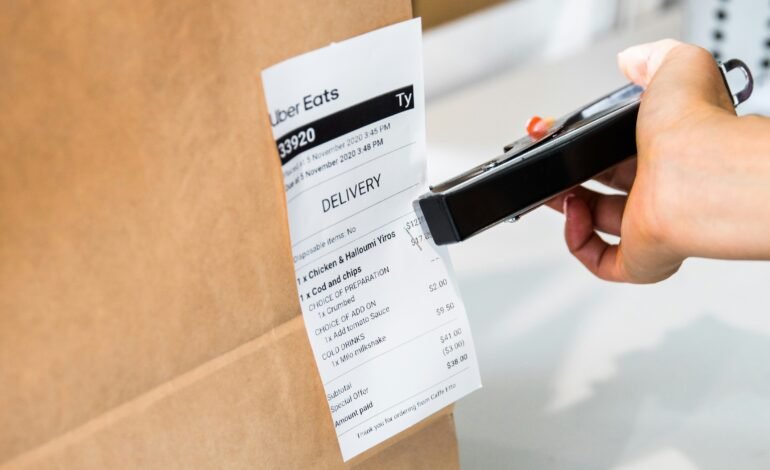Possible New Tax on Food Deliveries in Boston
Boston is considering a new 15-cent delivery tax. Traffic safety or a burden on restaurants? Read the debate.

Image by Unsplash
The Boston City Council is considering imposing a new tax on food deliveries, a measure that would affect companies like DoorDash, Grubhub, and Uber Eats. This 15-cent per-order charge is intended to fund regulation of delivery drivers.
A proposed new delivery tax in Boston has sparked intense debate about road safety and its economic impact on the city. Introduced as an amendment to a road safety ordinanceThe measure seeks to address problems caused by app-based delivery drivers, but critics warn that it could hurt both restaurants and users.
What Does the New Delivery Tax Entail?
Councilwoman Sharon Durkan, the main proponent of the new delivery tax, argues that the 15-cent charge per order is essential to cover the costs of implementing an ordinance proposed by Mayor Michelle Wu. This legislation seeks to penalize delivery drivers who violate traffic laws, such as double parking and reckless driving, problems that have increased with the rise of delivery apps.
Councilwoman Gabriela Coletta Zapata, who chairs the subcommittee tasked with evaluating the ordinance, confirmed that a new delivery tax is on the table as a possible addition. The funds raised would be used to ensure compliance with the new regulations, making the streets safer for everyone.
Restaurant Industry Opposition
The Massachusetts Restaurant Association, led by Stephen Clark, has expressed strong opposition to the new delivery tax. In a letter sent to Mayor Wu and the 13 council members, Clark warned that the charge will make orders more expensive, discouraging consumers and hurting local businesses.
Clark also criticized other aspects of the ordinance, such as data-sharing requirements that could compromise the privacy of consumers and restaurants. While the association doesn't completely oppose the mayor's proposed regulations, it insists the tax is a mistake that will hurt small businesses.
The Mayor's Perspective and the Decisive Deadline
Mayor Wu's office clarified that the new delivery tax was not part of the original ordinance and emphasized that discussions have been held with delivery companies to balance safety and privacy. A spokesperson stated that the measure holds large national companies accountable and ensures drivers have insurance coverage, while addressing the rise in dangerous driving and congestion.
The City Council must decide on the ordinance and any amendments, including the tax, by April 2, 2025. If no action is taken, Wu's proposal will go into effect as is. However, council members like Ed Flynn have already announced they will vote against it if the new delivery tax is included, arguing that this is not the right time to impose further financial burdens on citizens.
Follow to More Latin to keep you informed about news in your community.
Sources:
